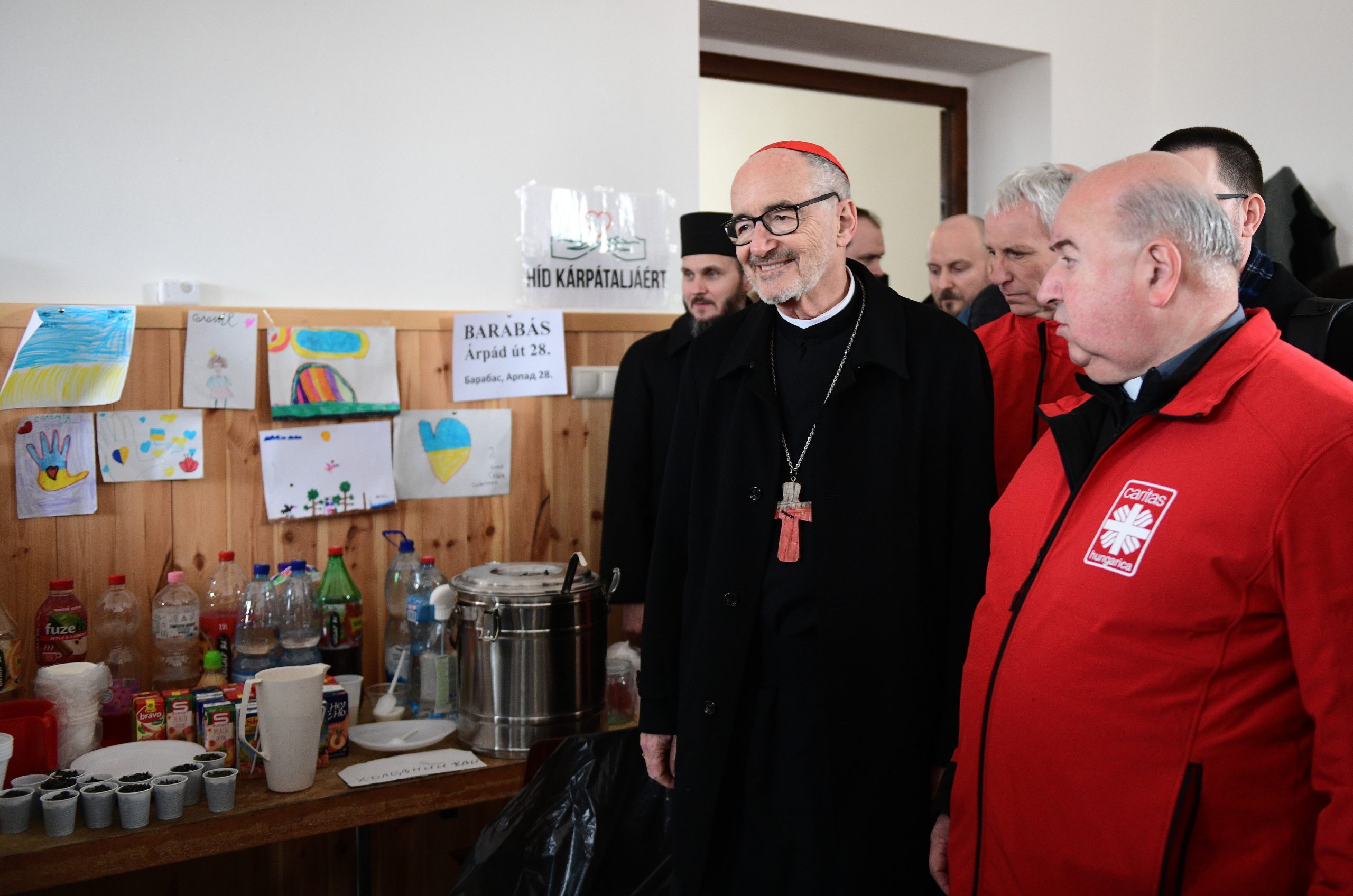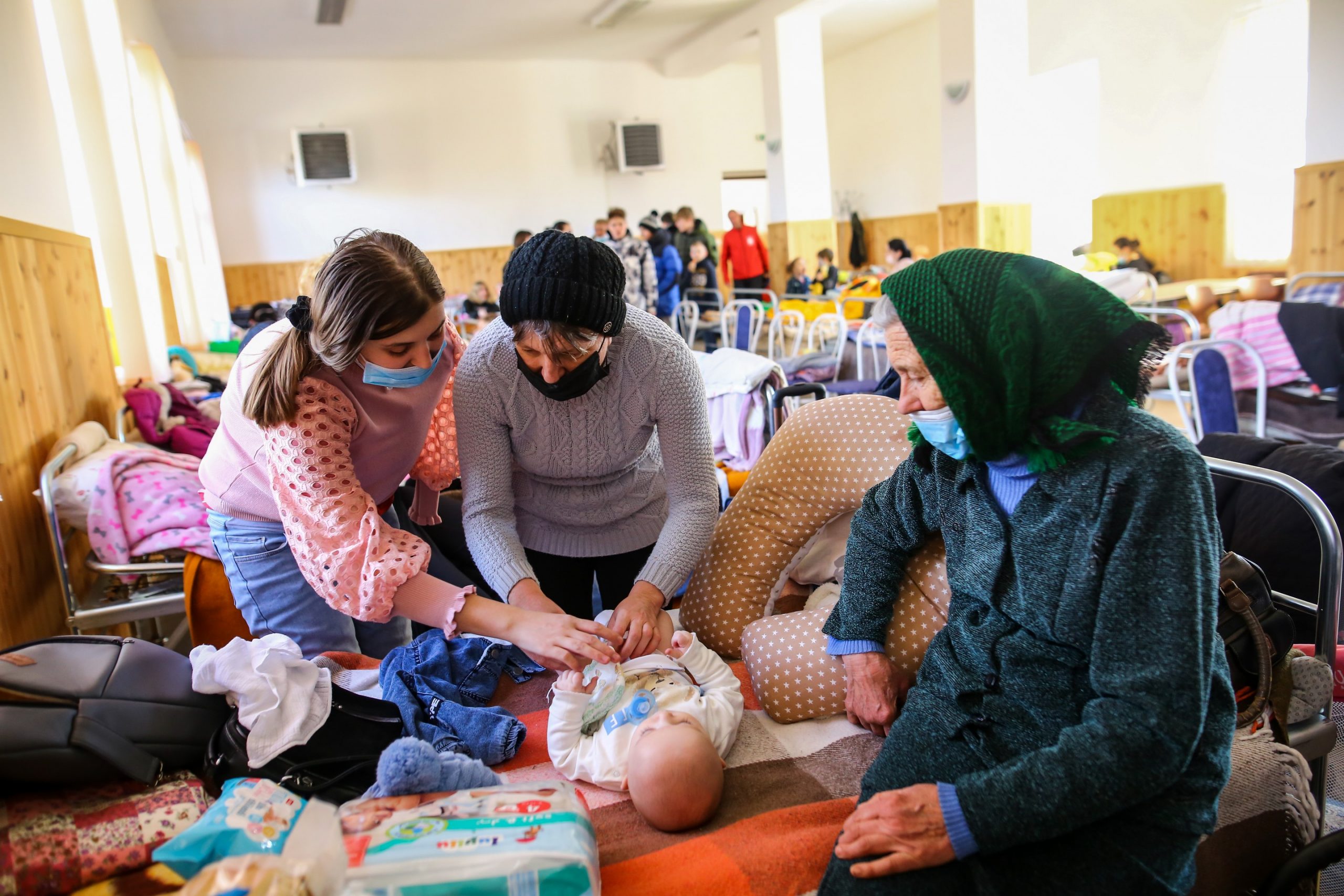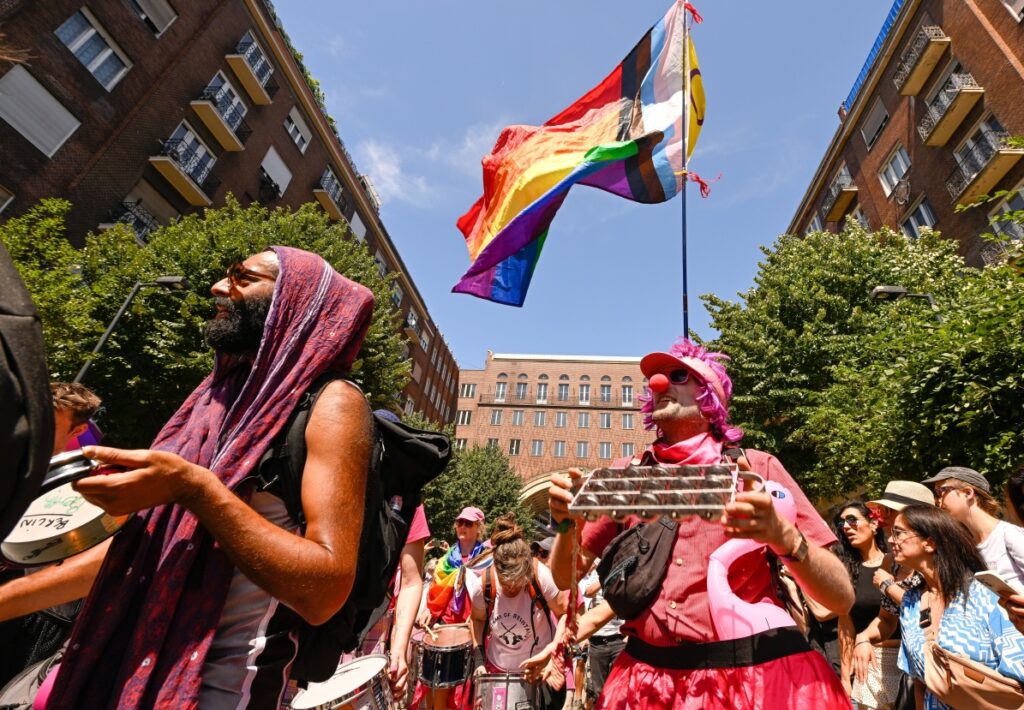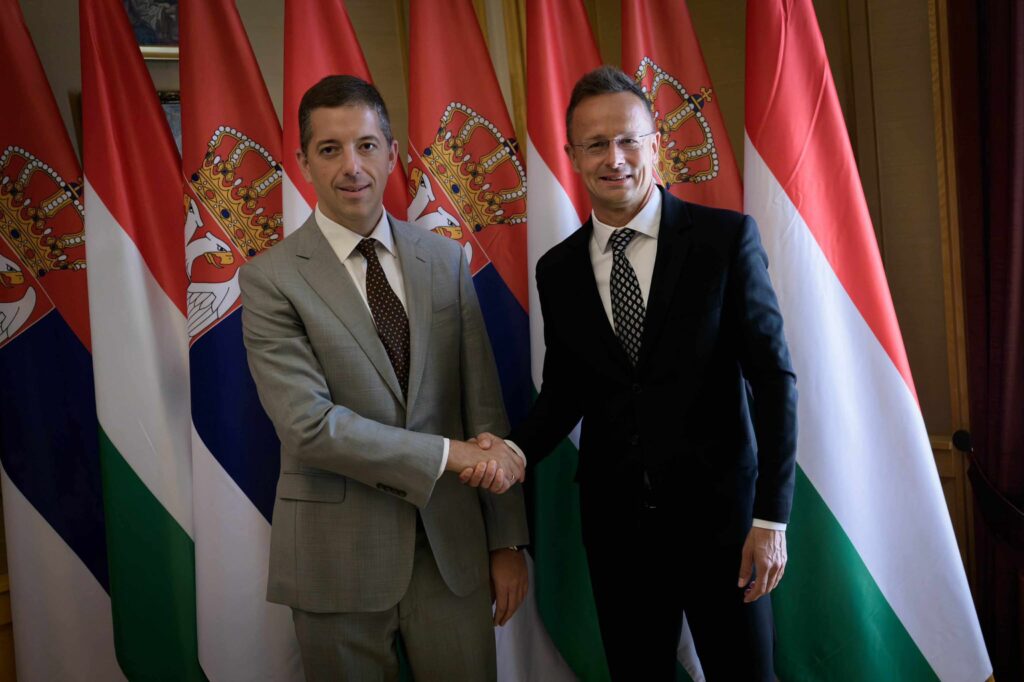“From brothers we flee, strangers take us in.” With these words an elderly woman from Kyiv addressed Cardinal Czerny at the Catholic Caritas aid center for refugees. What she is experiencing and expressing is an experience of many people in the midst of war. Cardinal Michael Czerny, interim head of the Development Agency, special envoy of the Pope, met with high-ranking church representatives, as well as the head of the Military Administration of Transcarpathia in the Ukrainian town of Beregszász (Berehove). At least 100,000 refugees have just arrived in the region. All Catholic Church facilities – schools, parishes, community centers – have been made available for accommodation. “The need is great,” admitted the Church representatives. On-site report by Hungary Today correspondents.
This article was originally published on our sister-site, Ungarn Heute. Written by Éva Trauttwein. Photos by Zita Merényi/Hungary Today
One of our visits is to the Transcarpathian town of Beregszász (Berehove) to a family with seven children. Our companion, Gábor Écsy, director of Catholic Caritas Hungary says: “They live in poverty, but children are the most important thing for them.”
This family is one of the 500 families supported by Caritas, the Aid Organization of the Hungarian Catholic Church. This time the Caritas director brought food for them. The mother has stayed in Beregszász with the five small children and her elderly parents. The husband works in Hungary, but his earnings are not enough to feed the whole family or rent an apartment; on the other hand, it is unimaginable for them to leave their old parents alone. Two of the children work and study in Hungary, the other five – the youngest is barely a year old – are at home with their mother. A difficult, but by no means hopeless situation. The children’s smiles speak of this, their looks full of confidence.
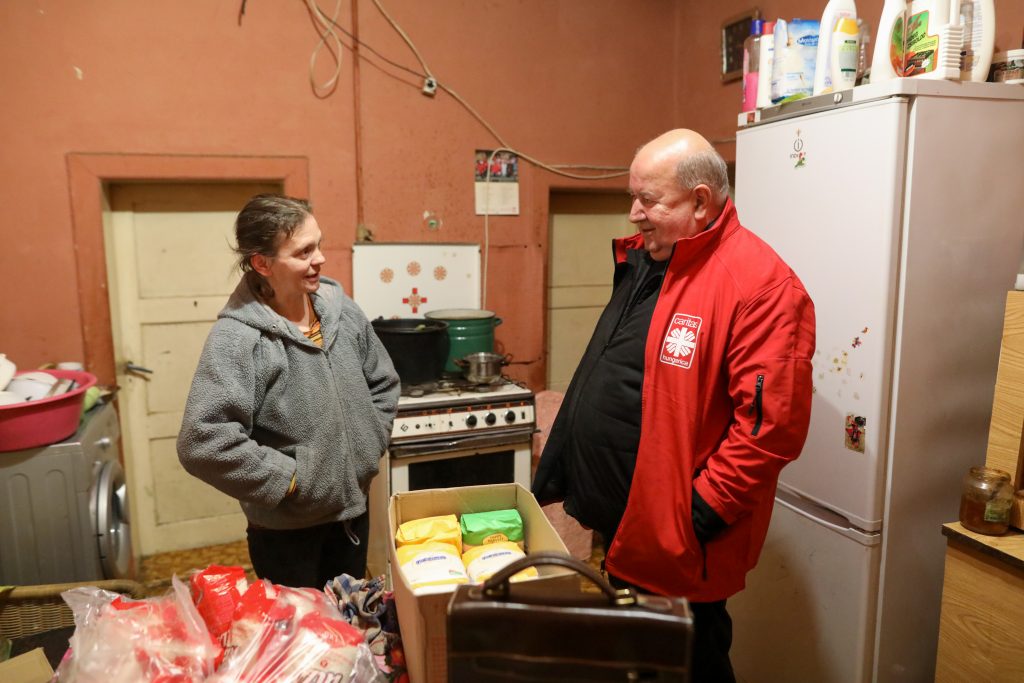
Gábor Écsy visiting a family.
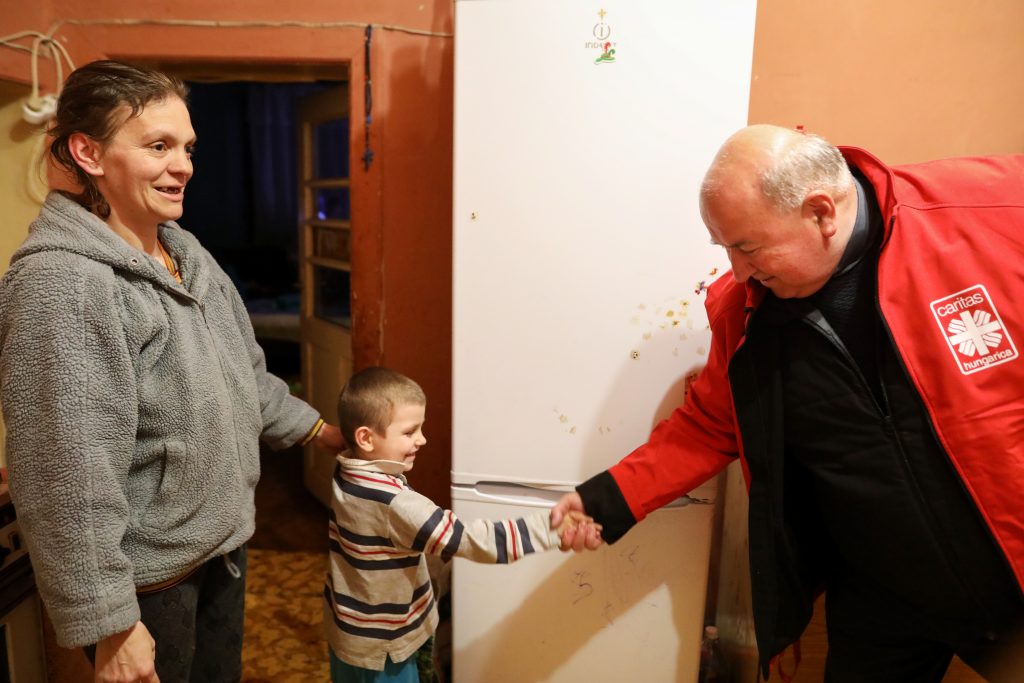
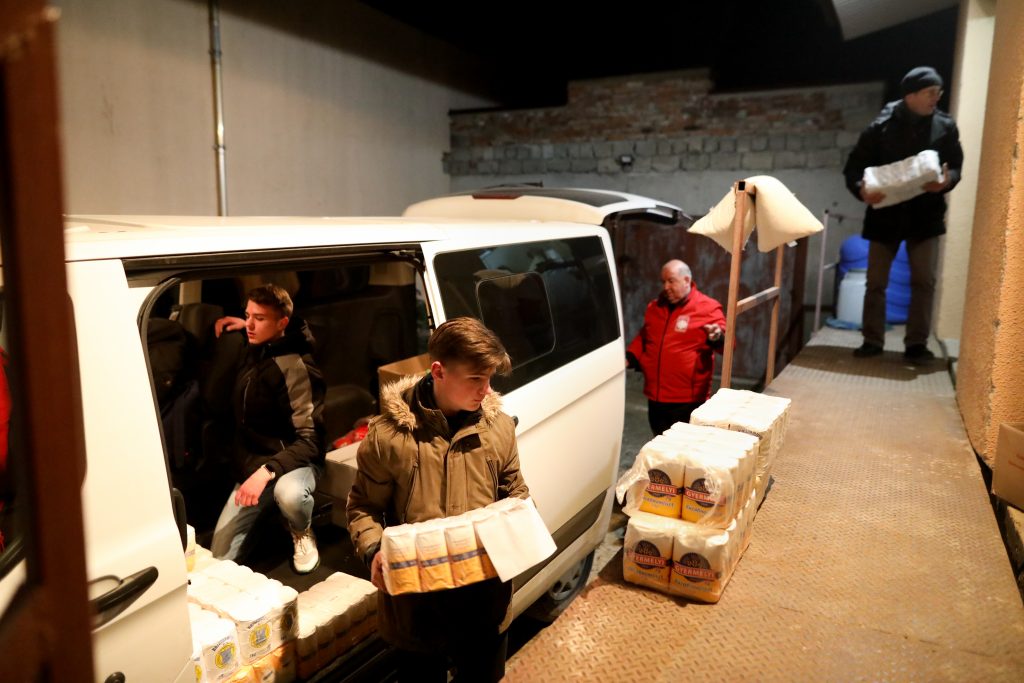
We also met with the local parish worker and her husband in Beregszász, who are now the only ones from the family who stayed in their hometown. They are happy that their family is safe in Hungary.
Here in Berehove, we primarily take in children. The youngest is now 14 months old. I also have grandchildren and I feel it is my duty to take care of the fleeing children. We will stay here, hold out as long as it is necessary. Today we made jam dumplings together. The children were happy to help. The smaller ones don’t understand why they are here, they are open to play, but the bigger ones need our support. We have to show ourselves strong, we must not cry in front of them,”
she says with tears in her eyes.
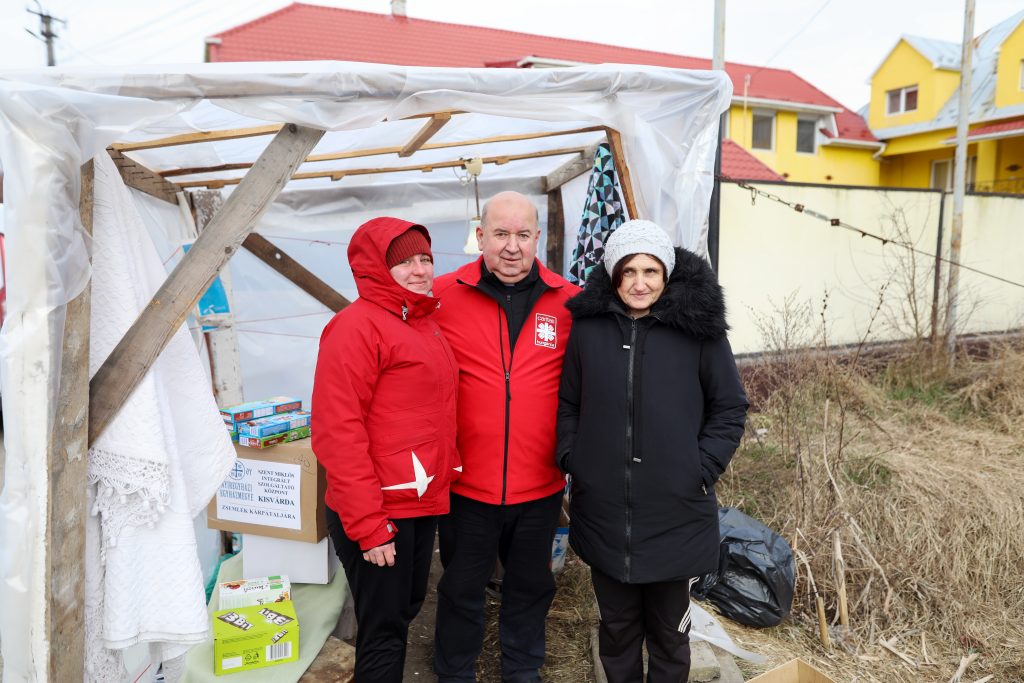
Church helping with supplies
“We have understood that effective help can only be provided with a joint effort. In coordination with municipalities, parishes, other charities, and civil society organizations, structures must be maintained to provide shelter, initial care, and counseling to people fleeing,” said Nil Lushchak, Greek Catholic bishop in Beregszász, in the Ukrainian town where refugees are also arriving by the thousands. Many move on, but some are staying in the small settlement for days. At the outbreak of the war, many also fled from the Transcarpathian settlement, especially young men who were in military service, leaving their families behind.
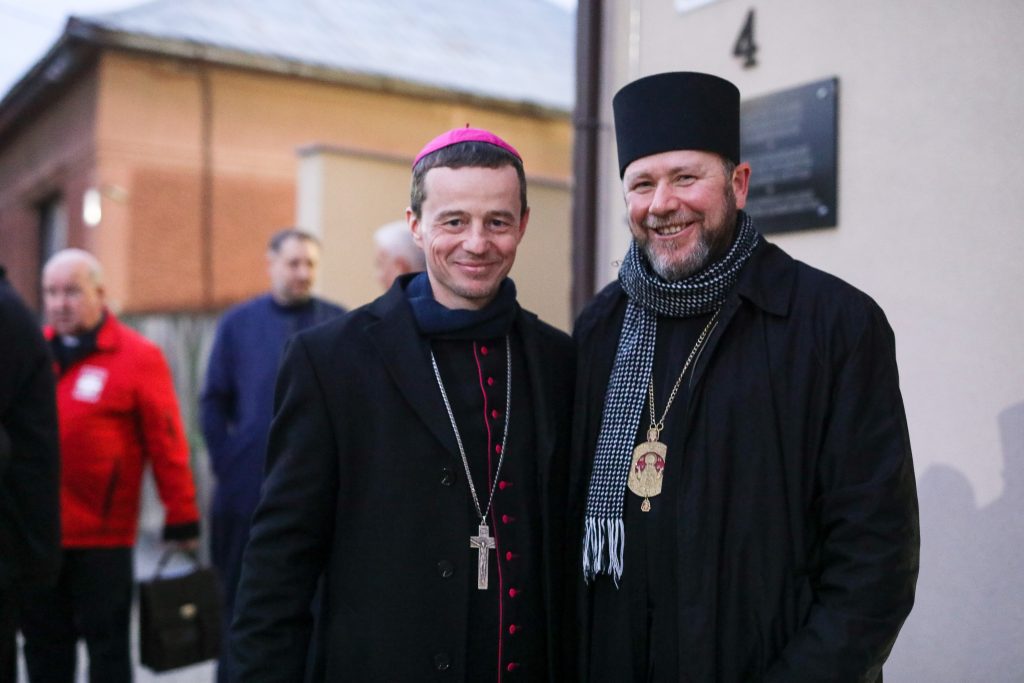
Miklós Lucsok, Apostolic Governor of the Roman Catholic Diocese of Munkács, and Nil Lushchak, Greek Catholic bishop in Beregszász.
The Pope’s envoy was received in the border town by Miklós Lucsok, Apostolic Governor of the Roman Catholic Diocese of Munkács (Mukachevo), among others. Bishop Lucsok said on the spot that his life now revolves only around the war. As a pastor, he sees it as his duty to focus on a specific day:
There are 100,000 refugees in Transcarpathia. All the institutions of the Catholic Church, schools, parishes, community centers have been provided as accommodations and the faithful are taking care of the incoming masses. On the other hand, it is estimated that 30,000 people from the Hungarian minority have already left Ukraine. Old and sick people were left without relatives, and their care is also the responsibility of the Church and its organizations. Here, too, Caritas is a mainstay of assistance.”
The need is great, continued Bishop Lucsok, and not only in a material sense, as mental and emotional suffering seems overwhelming.
Large quantities of foodstuffs arrive in Ukraine from Hungary every day. The distribution of goods is a challenge: the distribution lines created at the beginning do not work, so many people have now chosen to leave.”
To go or to stay? That’s a burning question on many people’s minds these days. With heavy hearts, parents persuade their children to leave, their safety the most important thing.
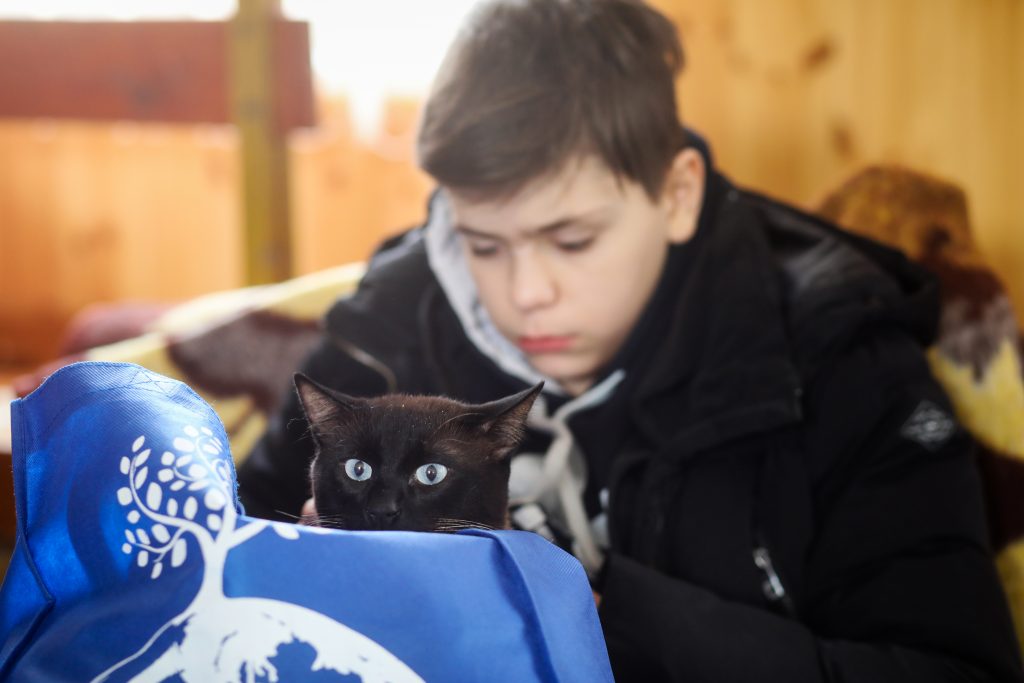
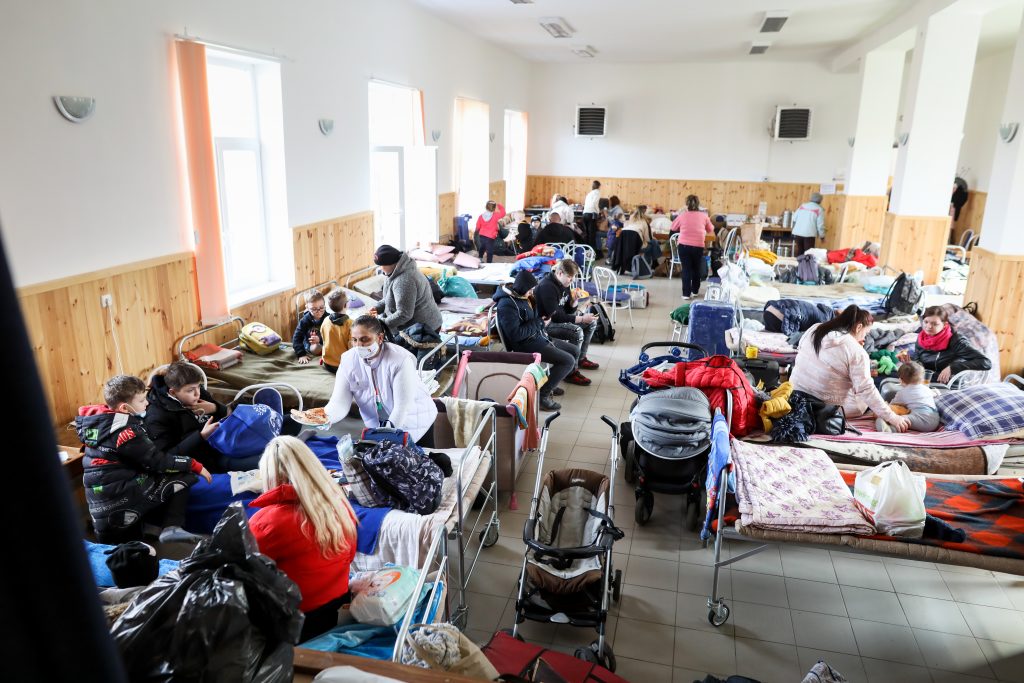
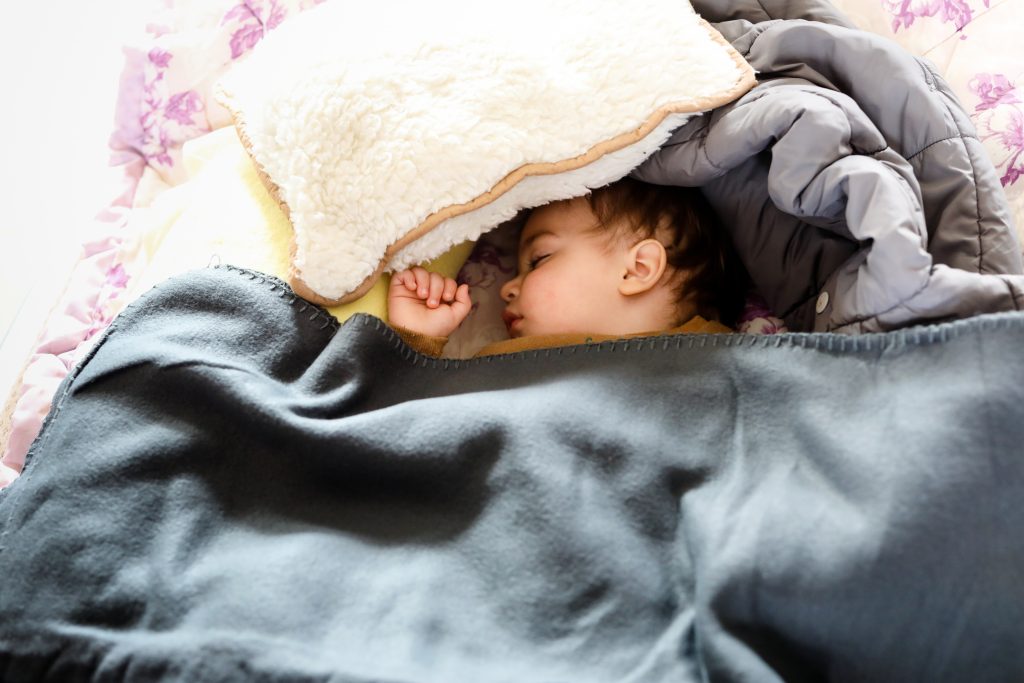
Fact
“Suffering unites us, brings us together mutually.” In the spirit of cohesion, a meeting was held in Beregszász, Ukraine, with the participation of Cardinal Michael Czerny of the Curia, Bishop Miklós Lucsok, apostolic administrator of the Roman Catholic Diocese of Munkács, Nil Lushchak, Bishop of the Greek Catholic Diocese of Munkács, Fabián Sándor Zán, Reformed Bishop of Transcarpathia, Fedir Rajcsinec, Chief Bishop of the Free Christians of Ukraine, and Viktor Mikita, head of the Military Administration of Transcarpathia and Petro Zharkovsky Director of Ukrainian Caritas.All participants of the conversation confirm: Cardinal Czerny’s presence stands for the presence of the Pope, for the presence of all believers, and is experienced as affirmation. The program of the delegation accompanying Michael Czerny, in addition to the meeting, included a visit to the Caritas institutions in Beregszász and Munkács. In both Ukrainian towns a significant number of ethnic Hungarian minorities live.
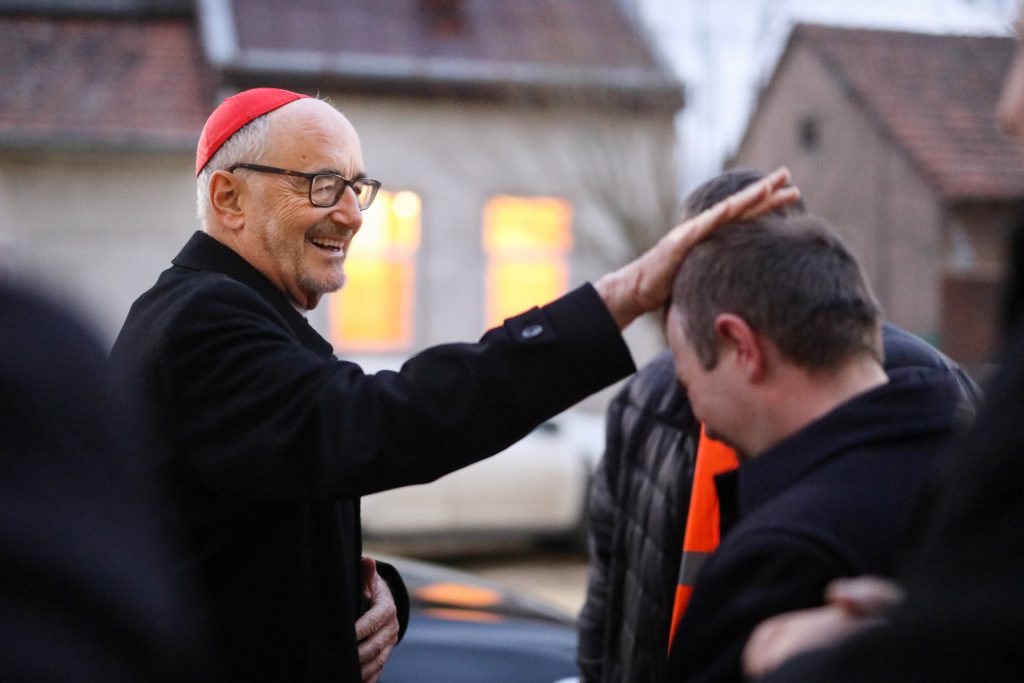
Cardinal Michael Czerny
The local bishops think that people should experience that we Christians are all one big family, where people are offered food, and are listened to.
We must show that we are capable of sticking together and acting together,”
they emphasized all around.
Petro Zharkovsky, director of Caritas formulates, says that people in Ukraine are ready to protect their country. They believe that God will help them. “In what way, we do not know. Our life is a way of the cross, many are capable of climbing Golgotha and die rather than give up.” Viktor Mikita, head of the Military Administration Office of Transcarpathia Region also stressed that the task of the Military Administration is first of all to ensure stability and order in Transcarpathia. He also stressed that the protection of the homeland is their primary goal.
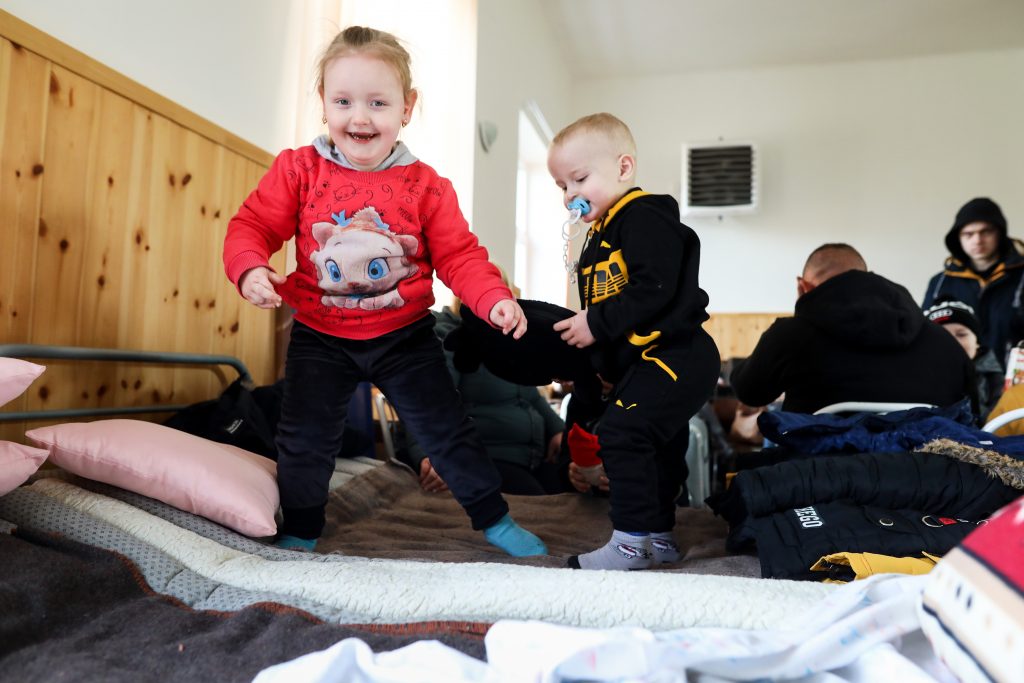
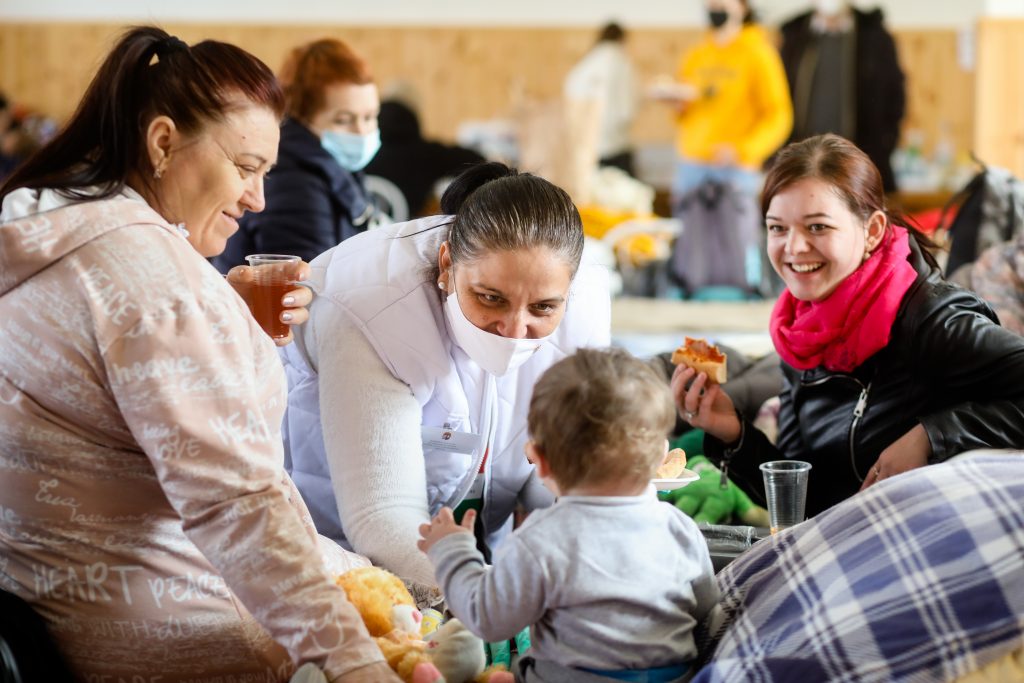
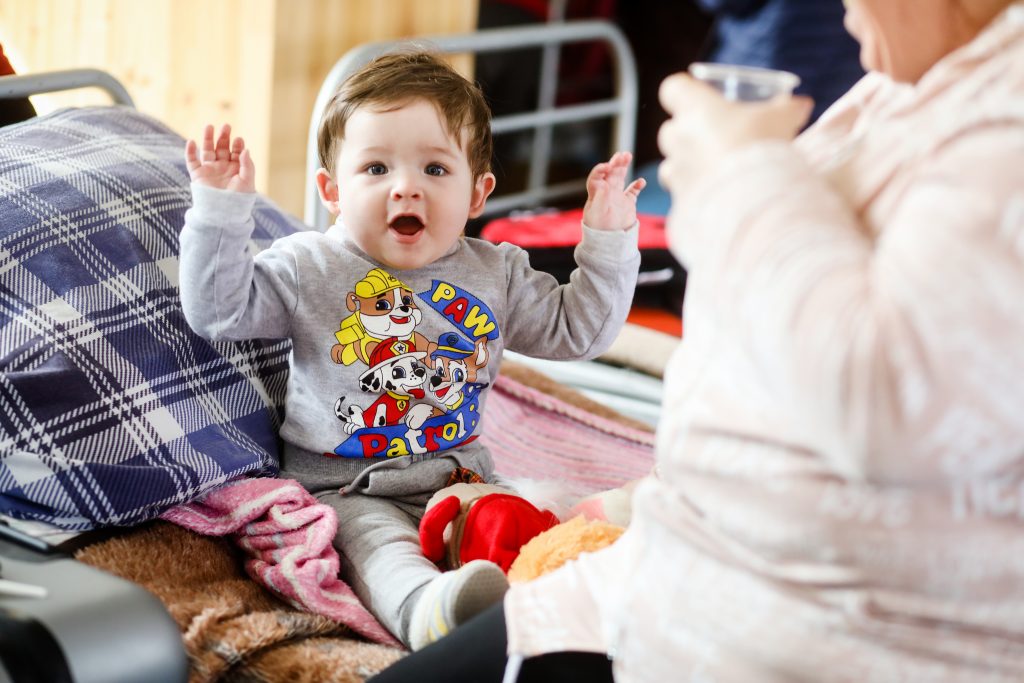
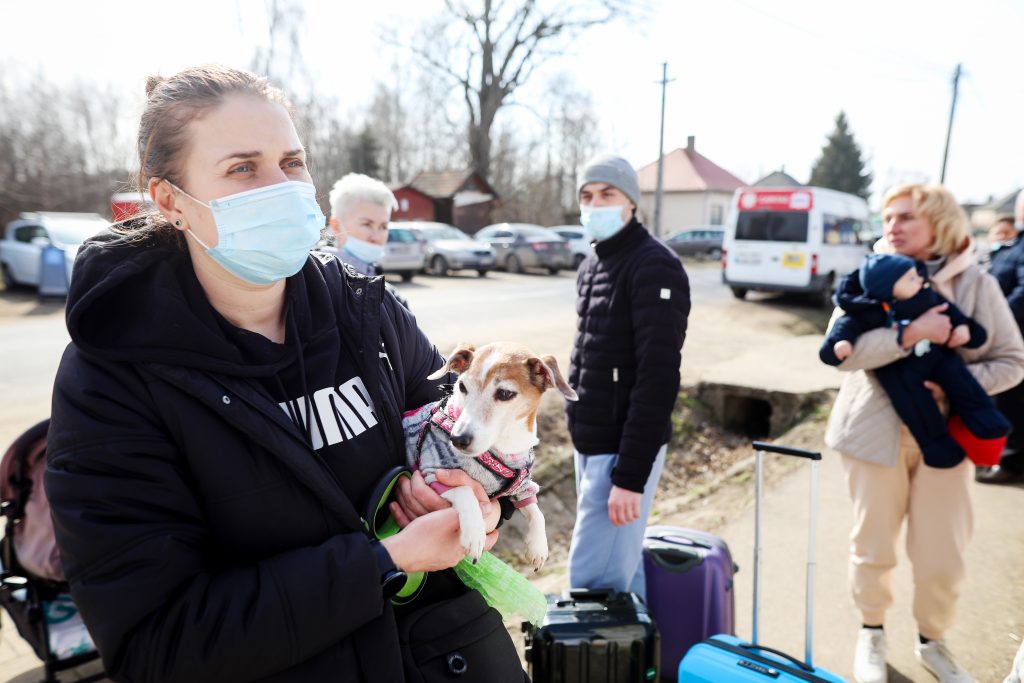
In the conversations, the question is asked again and again: When will the war end?
Bishop Lucsok warns against forecasting. “The greatest freedom is given to us when we trust in God and always focus on a concrete day. We are wounded and when we turn to God, we experience a deep connection with Him and reconciliation with our fellow human beings. This is how we find a simpler, honest Christian life. Our cohesion can also help Europe get on its feet.”
Photos by Zita Merényi/Hungary Today
